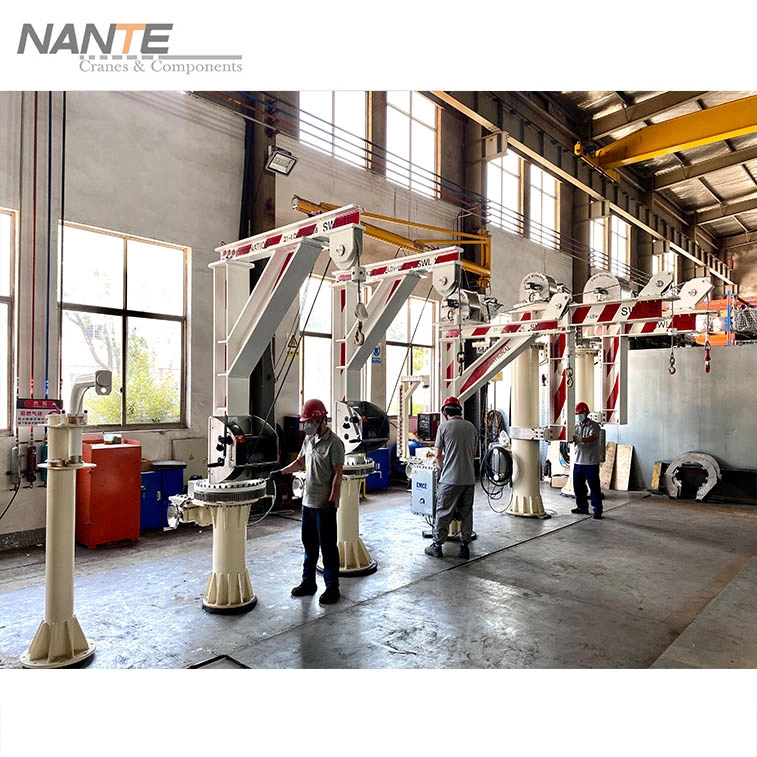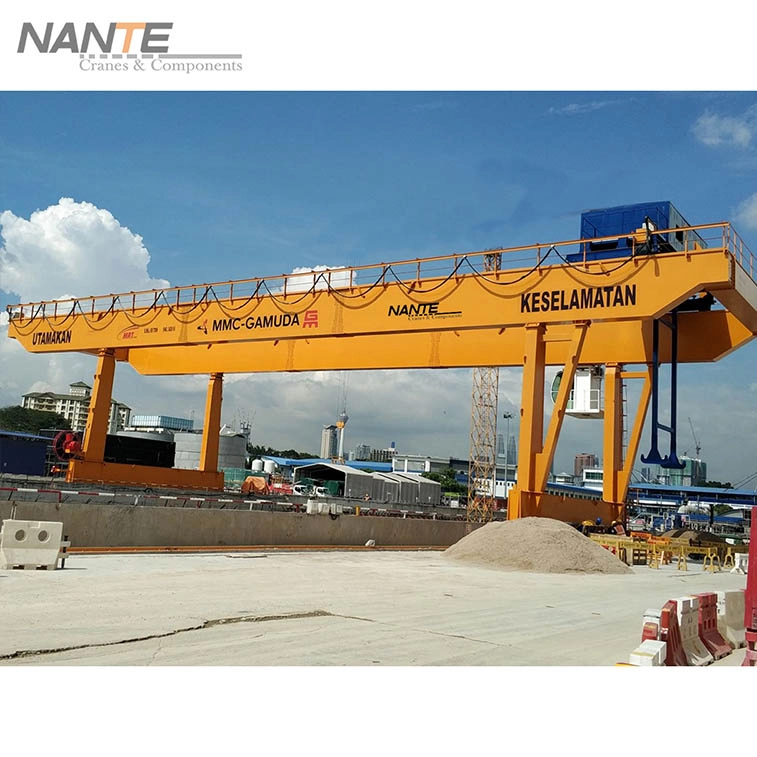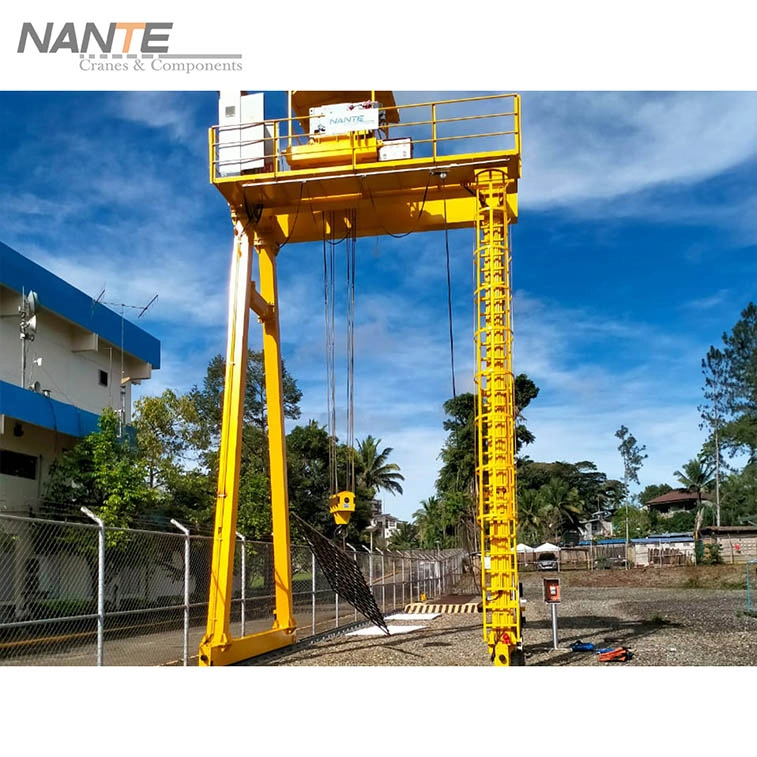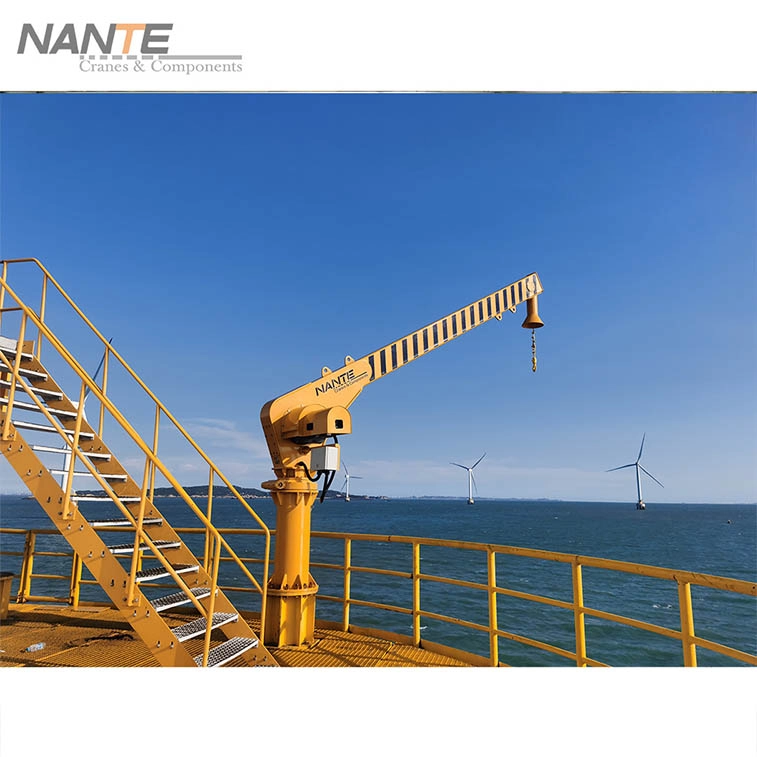Essential Training Requirements for Offshore Crane Operators Explained
Date: 2024-10-24 Share:
Overview of Offshore Crane Operations
Offshore crane operations are an integral part of marine industrial activities, particularly in sectors such as oil and gas exploration, wind energy production, and maritime transport. These cranes are designed to operate in harsh marine environments, making them specifically engineered to withstand varying weather conditions and heavy loads. The role of offshore cranes is critical during construction, maintenance, and decommissioning processes on offshore platforms. Proper training for operators is essential to ensure safety and efficiency in these operations.
Types of Offshore Cranes
There are several types of offshore cranes used across different marine applications, including but not limited to, knuckle boom cranes, pedestal cranes, and davit cranes. Each type serves various purposes, depending on the specifications of the job and operational requirements. For instance, pedestal cranes, known for their robustness, are often utilized in lifting heavy equipment to and from offshore structures. Davit cranes, on the other hand, are ideal for lighter lifting and are frequently used for rescue and safety operations. Understanding the functionalities of these cranes is vital for operators to ensure the correct equipment is used in appropriate scenarios.
Key Roles and Responsibilities of Offshore Crane Operators
The primary responsibility of offshore crane operators is to safely maneuver and operate the crane during lifting operations. This requires not only technical skills but also an understanding of load dynamics and crane operations. Operators must communicate effectively with ground crew and adhere to safety regulations to prevent accidents. Additionally, they are responsible for conducting pre-operation inspections to ensure that all systems are functioning correctly, which is pivotal in maintaining operational safety and efficiency.

Mandatory Certifications and Licenses
Basic Safety Training (BST)
One of the essential training requirements for offshore crane operators is Basic Safety Training (BST). This training equips operators with crucial skills to respond to emergencies, understand safety protocols, and conduct operations in a safe manner. BST typically covers various topics, including fire safety, personal survival techniques, first aid, and incident reporting. Operators are required to complete this training before undertaking any offshore crane operations.
Offshore Crane Operator Certification (API RP 2D)
The API RP 2D certification specifically targets those operating offshore cranes and serves as a benchmark for competencies associated with these operations. This certification ensures that operators possess the necessary technical knowledge and practical skills required for safely managing offshore crane activities. Obtaining this certification implies compliance with industry standards and demonstrates that the operator has met the qualifications necessary for effective crane operation.
Other Relevant Certifications (e.g., Rigging, Lifting Operations)
In addition to the basic and specific offshore crane operator certifications, other relevant qualifications such as rigging and lifting operations certifications are also mandatory. These certifications provide operators with a deeper understanding of load management, rigging principles, and safe lifting practices. Continuous professional development through these additional certifications enhances the operators’ skills, ensuring they are equipped to handle various challenges that may arise during offshore operations.

Skills Development and Competency Assessment
Technical Knowledge in Mechanical and Hydraulic Systems
Crane operators must possess comprehensive technical knowledge of mechanical and hydraulic systems involved in crane operations. This knowledge allows operators to troubleshoot issues, perform necessary maintenance, and understand the crane’s lifting capacities and operational limits. The transmission of knowledge in mechanical and hydraulic systems is often incorporated into training programs to ensure that operators are proficient in resolving operational challenges.
Practical Training Sessions and Hands-On Experience
Hands-on experience is a crucial component of training for offshore crane operators. Practical training sessions allow them to familiarize themselves with operating procedures and the specific equipment they will be using. Trainees gain valuable insights into technical tasks through simulated environments or actual equipment operations under professional supervision. This practical exposure solidifies the skills learned in theory and reinforces the importance of safety and operational efficiency.
Regular Skill Assessments and Re-certifications
To maintain high operational standards, regular skill assessments and re-certifications are necessary for offshore crane operators. These assessments evaluate the operator’s performance and ensure that they remain competent in their roles. As technologies evolve and new practices emerge in the industry, continuous education and changes in certification requirements can also be reflected in the re-certification processes. This commitment to ongoing training promotes a culture of safety and expertise within the offshore crane operation sector.

Importance of Adhering to Safety Protocols
Understanding Load Charts and Limits
A fundamental aspect of operating offshore cranes is understanding load charts and limits. Operators must accurately interpret these charts to determine safe lifting capacities for various configurations. Familiarity with load weights, lift angles, and center of gravity is essential for the prevention of accidents and for ensuring load stability during operations. Compliance with these predetermined limits is non-negotiable for safety.
Emergency Response and Rescue Procedures
Emergency preparedness is a critical element of offshore crane operation. Operators are trained in emergency response and rescue procedures specific to marine environments. This training ensures that operators can react swiftly and effectively during emergencies, minimizing risk to personnel and equipment. An understanding of emergency protocols not only facilitates effective responses but also builds confidence among operators regarding their safety during operations.
Routine Safety Drills and Simulations
Conducting routine safety drills and simulations is imperative for reinforcing safety protocols among offshore crane operators. These drills familiarize operators with emergency procedures and develop their response capabilities in simulated scenarios. Improved performance during drills contributes to overall preparedness and ensures that operators can act efficiently in real-life situations. Continuous training in safety drills cultivates a safety-first mindset essential in offshore environments.
Continuing Education and Professional Growth
Keeping Up with Technological Advancements
In the rapidly evolving landscape of offshore crane operations, operators need to stay updated with the latest technological advancements. With innovations in equipment design, safety features, and operational software, operators must engage in ongoing training to enhance their technical competencies. This continuous learning allows operators to integrate new technologies into their workflow effectively, which can significantly improve safety and efficiency in operations. Thus, investing in regular training programs that focus on the latest developments ensures that operators remain proficient and adaptable to changing industry standards.
Participating in Industry Seminars and Workshops
Industry seminars and workshops provide invaluable opportunities for offshore crane operators to expand their knowledge and skills. These events often feature experts discussing best practices, technological innovations, and regulatory changes impacting offshore operations. Networking with peers also enhances learning, as operators can share experiences and solutions to common challenges. Participation in these educational forums not only contributes to professional growth but also fosters a culture of continuous improvement within the organization and the broader industry.
Networks, Forums, and Professional Communities
Joining professional communities and forums dedicated to offshore crane operations can significantly benefit operators in their careers. These platforms allow operators to connect with others in their field, exchanging information about training resources, safety standards, and innovative practices. Collaborative discussions and shared knowledge can lead to improved operational techniques and insights into the industry’s future. Engaging with such networks fosters a strong sense of community while reinforcing the importance of adhering to safety protocols and operational excellence.
Comprehensive Training Programs by Nante Company
Overview of Nante’s Offshore Davit Crane Product Line
Nante Company specializes in manufacturing a wide range of offshore cranes, particularly focusing on the intricate design of offshore davit cranes. These cranes are uniquely engineered to fit the specific demands of marine environments, delivering reliable performance during various lifting operations. Nantes offshore davit cranes impress with their versatility, accommodating various weight capacities and reach requirements. This extensive product line ensures that operators can select an appropriate crane tailored to their specific tasks and operational environments.
Specifications and Features of Nante’s Cranes
The cranes produced by Nante boast several specifications and features designed for optimal operation. These include heavy-duty construction materials, advanced hydraulic systems, and user-friendly control interfaces that streamline lifting processes. Each model undergoes rigorous testing to ensure it meets international safety and performance standards, providing operators peace of mind. Furthermore, with features like corrosion-resistant coatings and ergonomic designs, Nante’s cranes are well-suited for the challenging conditions of offshore applications.
Benefits of Using Nate’s Crane Technology
Utilizing Nantes offshore crane technology delivers a multitude of benefits to operators and companies alike. Enhanced safety features, such as automatic shutoff systems and intuitive controls, reduce the risk of accidents significantly. In addition, Nante’s cranes are designed for energy efficiency, which can lead to reduced operational costs over time. The longevity and reliability of Nante’s cranes translate into fewer downtimes and maintenance requirements, ensuring smooth and continuous operations in demanding offshore settings.
Tailored Training Solutions Offered by Nante
Nante Company understands that effective training suited to specific operational needs is paramount for offshore crane operators. They offer comprehensive training solutions that include both on-site programs as well as convenient online modules. These diverse training formats cater to different learning preferences and logistical constraints, ensuring that all operators have access to necessary safety and operational training resources. Through tailored training, Nante aims to enhance the expertise and competence level of offshore crane operators across their client base.
On-Site Training Programs
Nante’s on-site training programs provide operators with practical, hands-on experience in utilizing their offshore crane technologies. Facilitators with vast industry experience conduct these sessions at the client’s location, enabling real-time learning environments where operators can practice using the cranes they will operate. These training sessions cover critical aspects of crane operations, including pre-operation checks, proper loading techniques, and emergency protocols. The personalized approach ensures that each operator receives the attention needed to master their specific equipment effectively.
Online Training Modules
Recognizing the need for flexibility, Nante also offers online training modules that allow operators to train at their convenience. These modules cover a wide array of topics relevant to offshore crane operation, including safety regulations, operational procedures, and maintenance best practices. Engaging multimedia content and interactive assessments ensures the retention of knowledge and best practices. The online format is particularly beneficial for those with scheduling conflicts, allowing operators to enhance their skills without disrupting their work commitments.
 English
English







